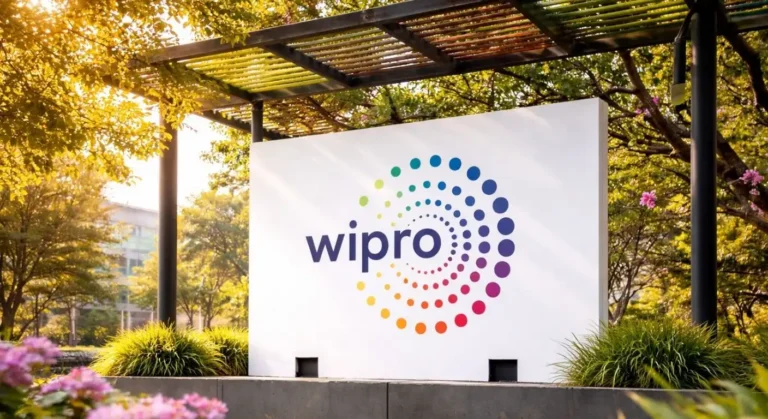Wipro Limited is one of India’s largest and most respected multinational corporations in the IT services and consulting sector. Founded as a vegetable oil manufacturer, Wipro transitioned into IT and technology services, becoming a key player in the global digital transformation landscape. This article explores Wipro’s journey from humble beginnings to its current status as a technology leader.
Founding and Early Vision (1945–1966)
Wipro Limited was founded in 1945 in Amalner, Maharashtra, by Mohamed Premji as Western India Palm Refined Oil Limited. The company initially focused on manufacturing and selling vegetable oils, including popular brands like Sunflower Vanaspati and Camel.
After Mohamed Premji died in 1966, his son Azim Premji returned from Stanford University to take over the business. Under Azim Premji’s leadership, Wipro began diversifying its operations, setting the stage for its eventual entry into the technology sector.
Diversification into IT Services (1977–1989)
In 1977, Wipro rebranded as Wipro Limited and began exploring opportunities beyond the consumer goods industry. Recognizing the potential of the burgeoning IT sector, Azim Premji led Wipro’s entry into computer hardware manufacturing in 1980.
Wipro partnered with Sentinel Computers, a U.S.-based company, to produce India’s first mini-computers. This venture marked the beginning of Wipro’s transformation into a technology-driven company. By the late 1980s, Wipro Limited had expanded into software development and IT services, focusing on delivering value to global clients.
Growth in IT Services (1990–2000)
The 1990s marked a period of rapid growth for Wipro as it capitalized on the globalization of IT services. The liberalization of the Indian economy in 1991 provided further impetus for expansion.
Wipro Limited diversified its IT offerings to include application development, systems integration, and IT consulting. It also established a strong presence in the U.S. and Europe, becoming a trusted partner for businesses seeking cost-effective software solutions.
By the decade’s end, Wipro had emerged as one of India’s top IT services exporters. The company’s focus on quality and innovation has earned it certifications such as SEI-CMM Level 5, reinforcing its reputation as a leader in the industry.
Establishing Global Presence (2001–2010)
In the 2000s, Wipro accelerated its global expansion and diversified its service portfolio. The company entered the BPO (business process outsourcing) market and expanded into infrastructure management, engineering services, and product development.
Wipro also made strategic acquisitions to enhance its capabilities, including the purchase of Spectramind, a leading BPO company, and Infocrossing, an IT services provider in the U.S.
During this period, Wipro Limited achieved several milestones, including being listed on the New York Stock Exchange (NYSE) in 2000. Azim Premji’s visionary leadership and commitment to corporate governance further solidified Wipro’s position as a global IT leader.
Leadership Transition and Strategic Shifts (2011–2015)
In 2011, Wipro Limited restructured its operations to focus exclusively on IT services. The non-IT businesses were spun into a separate entity, Wipro Enterprises Limited, allowing Wipro to concentrate on its core technology business.
Azim Premji stepped down as CEO in 2011, transitioning leadership to T.K. Kurien. Under Kurien, Wipro emphasized innovation and digital transformation, investing in emerging technologies like cloud computing, analytics, and mobility.
During this time, Wipro launched Wipro Digital, a business unit focused on helping clients navigate the challenges of digital transformation.
Transformation Under New Leadership (2016–2020)
In 2016, Abidali Neemuchwala took over as CEO, steering Wipro through a critical transformation phase. The company prioritized automation, artificial intelligence (AI), and cybersecurity to stay ahead in the competitive IT landscape.
Wipro also expanded its global footprint, securing significant deals in the financial services, healthcare, and retail sectors. In 2020, Wipro announced Thierry Delaporte as its new CEO, marking a shift in leadership with a focus on growth and efficiency.
Sustainability and Corporate Social Responsibility
Wipro Limited has long been committed to sustainability and social responsibility. The company has implemented numerous green initiatives, including energy-efficient operations and renewable energy projects.
The Azim Premji Foundation, established by Wipro’s founder, has contributed significantly to education and rural development in India. In 2019, Azim Premji pledged $7.5 billion to philanthropy, underscoring Wipro’s dedication to social impact.
Navigating the COVID-19 Pandemic (2020–2021)
The COVID-19 pandemic accelerated the demand for digital transformation, and Wipro responded by offering innovative solutions to its clients. The company focused on remote work enablement, cloud adoption, and cybersecurity to support businesses during the crisis.
Despite challenges, Wipro secured several high-value contracts and expanded its digital capabilities through strategic acquisitions, including Capco, a global management and technology consultancy.
The Future of Wipro: Innovation and Growth (2022–Present)
Wipro Limited continues to invest in emerging technologies like AI, blockchain, and quantum computing. The company’s focus on building strong partnerships with clients and driving innovation positions it well for sustained growth in the digital age.
With a renewed emphasis on diversity, inclusion, and sustainability, Wipro aims to create a positive impact while delivering cutting-edge solutions to global clients.
Conclusion
Wipro Limited’s evolution from a vegetable oil company to a global IT leader reflects its adaptability, innovation, and commitment to excellence. Through strategic diversification, leadership transitions, and a focus on sustainability, Wipro has consistently delivered value to clients and stakeholders.
As Wipro navigates the complexities of the digital era, its focus on innovation and social responsibility ensures it remains a key player in the global IT services landscape.





